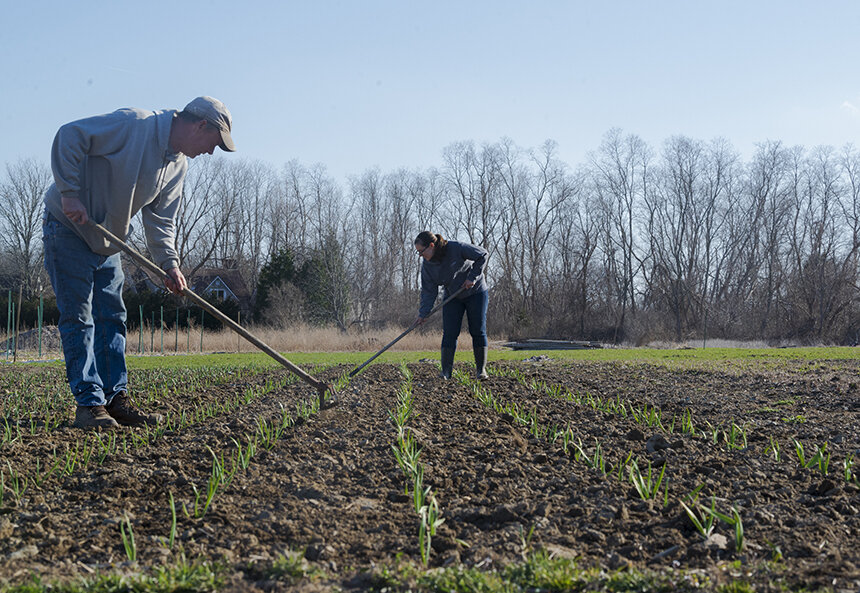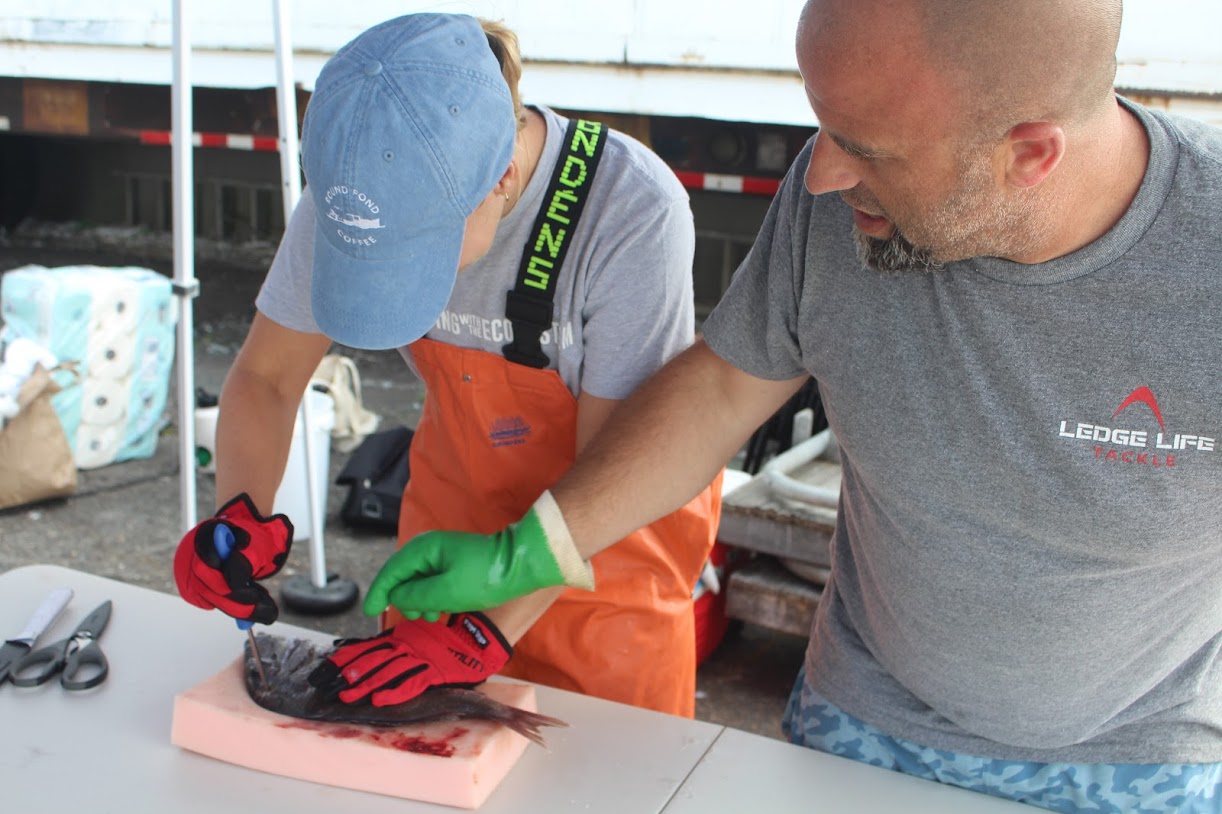Advocates Want More Money for Farmland Preservation in Green Economy Bond
March 21, 2022
PROVIDENCE — Advocates are asking state officials to add $3 million for farmland conservation to this year’s $38 million Green Economy bond.
The money would go toward the Agricultural Lands Preservation Commission (ALPC), a quasi-governmental agency overseen by the Rhode Island Department of Environmental Management that helps farmers by purchasing development rights to their land. This year’s Green Economy bond is the first bond question in over a decade to not include funding for the ALPC program, and advocates say the program will run out of money as soon as next year.
“If there’s no money for the commission to use, that program will get shut down,” said Diane Lynch, director of the Rhode Island Food Policy Council. “And that means we continue to lose farmland, which is normal for the kind of state we are, but we’ll just continue to lose and there will be nothing preserved.”
Farmland is indeed slowly vanishing in R.I. Between 2001 and 2016, the state lost 4% of available farmland to development, with an estimated annual farm revenue of $3.7 million, according to the American Farmland Trust. The average land value for farmland per acre is $16,468.
The ALPC was established in 1981 with the mission of slowing down the development of the state’s existing farmland by identifying the most important land and purchasing easements to preserve the lands in perpetuity. The commission has no dedicated budget, so most of its funding is derived from government bonds that appear on the ballot every two to four years. Since 1985, it’s preserved 8,000 acres of farmland across 124 individual farms. The ALPC has approximately $900,000 left in its operating budget from the last Green Economy bond.
“It’s the best time to get some of these conservation projects done and the worst time to defund ALPC,” said Kate Sayles, director of the Rhode Island Land Trust Council. Farmland and open space conservationists are facing a perfect storm: prices have never been better for current landowners to consider selling, but the properties are being eyed by hungry developers offering higher prices than conservationists can offer.
Farmers stressed the need for funding the ALPC during a February meeting of the House Finance Committee. “These are tracts of land that have kept wildlife, pollinators, birds and fauna alive in our state,” Barrington farmer Candance Clavin wrote in testimony to the committee. “It is not just open farmland that we are preserving, but the perimeters, stream banks, the soil and trees that hold water in place.”
ALPC committee members wrote to the committee in support of the budget. “The pressure to develop farmland has only increased due to the renewable industry looking for” easy-to-develop sites, said ALPC member Martha Swanson Neale. “Not too many farmers can resist the allure of the big checks promised by some of these companies.”
“We have several projects in the works for development rights purchases, but not enough funding for all of them,” said commission member Mike Hutchinson.
State environmental leaders acknowledged the lack of ALPC funding before the Senate Finance Subcommittee last week, but indicated they were open to more money for the bond. “I think it’s a question of, how big is the pie?” said DEM acting director Terrence Gray.
The $38 million Green Economy bond includes: $16 million in Municipal Resiliency Matching Grants; $5 million for the Small Business Green Energy Loan Program; $4 million for brownfields remediation and development; $3 million for Narragansett Bay and watershed restoration; $3 million for forest conservation; $3 million for the State Open Space Land Acquisition Program; $2 million for the Local Open Space Land Acquisition Program; and $2 million for the Local Recreation Grant Program.




$3 million seems a relatively small ask for such an important program. With climate change, continuing rapid population growth, soil depletion, and now the Russia-Ukraine conflict, the world faces food insecurity short-term and long-term, so it is important to protect what farmland we have left as much as possible.
I’ll also note bicycle advocates are also asking for an addition to the Green Bond to fund bike infrastructure. A bicycle is a close as possible to a true zero-emission vehicle as well as being affordable, healthy, and most often fun to ride. But RIDOT has shifted funds away from bike programs. DEM included biking in the 2016 and 2018 bonds, but left it out in 2020 and now again, even though reducing transportation emissions is more important than ever and the Transportation Climate Initiative that the state was counting on to do this is now off the table. Hard to understand why DEM seems to have become hostile to biking
Although housing is an important need farming and wildlife are equally if not more important. Once lost to development it is gone. Conservation cluster development is a help when developing subdivisions but it still negates most farming potential. Concentrate development in more developed areas and leave the open spaces and farmland, forest and wildlife which play an important part in maintaining the world.
Greenhouse farming should be just as much a part of densely developed areas of towns and cities, as the conversion of mill buildings in Providence for aquaculture. It would require a new kind of zoning, “CityFarm” or “UrbanFarm” . If there is a defunct plaza or corporate chain gone, why not re-zone to encourage green houses where the is nothing but unused pavement and space . We can reimagine where our food can be grown, with Aquaculture. It need not be the fields where trees can regrow and water absorbed. Trees are the efficient carbon sink we need, and trees take some time to grow. The time is now.